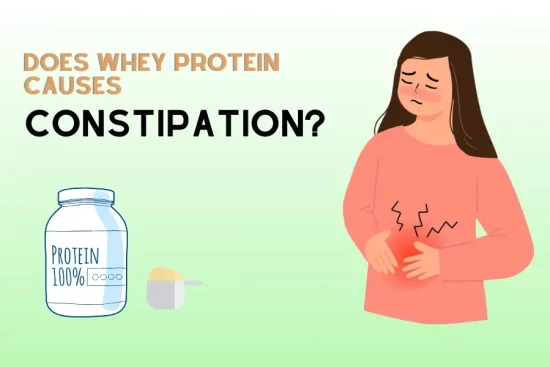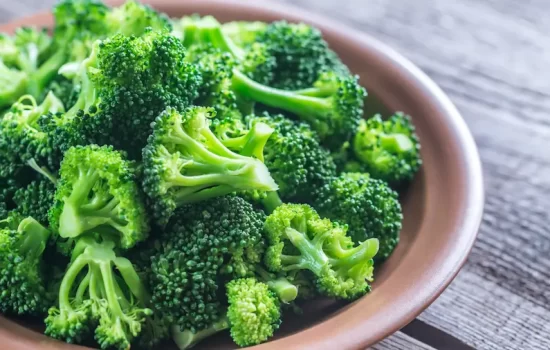Introduction
When we discuss whey protein, it’s often linked to building muscles. However, many people commonly complain about experiencing gas, stomach bloating, and constipation after consuming whey protein. Does whey protein cause constipation? Let’s explore the reasons behind these issues and find solutions to enjoy the full benefits of whey protein without discomfort.
Does Whey Protein Causes Constipation?
Yes, Whey Protein can cause constipation in people who have issues such as Milk Protein Allergy and Lactose Intolerance.
Milk protein allergy happens when the body sees the food intake as a threat and reacts by triggering an immune response with specific antibodies. Now this could become a serious issue for a few people. If you find any serious symptoms regarding this, please get in touch with the doctor.
Another reason for constipation due to Whey Protein is Lactose Intolerance.
Lactose Intolerant and Whey Protein?
Lactose is a sugar commonly found in dairy products. If you’re lactose intolerant, you may have trouble digesting lactose, either partially or completely. Whey protein, which is the liquid remaining after making cheese, also contains lactose. If you’re lactose intolerant, this might be why whey protein causes constipation for you.
Does Plant-Based Protein Powder cause Constipation?
Unlike Whey Protein, plant-based protein powders don’t lead to constipation. But, they might bring about other digestive issues if they contain a lot of FODMAPs. FODMAP stands for fermentable oligosaccharides, disaccharides, monosaccharides, and polyols – these are short-chain carbohydrates (sugars) that the small intestine doesn’t absorb well. For some folks, eating these can cause digestive discomfort, leading to symptoms like cramping and diarrhea.
How to Stop Whey Protein Constipation?
Switch to Protein Isolate
Protein Isolate is a type of Protein Powder that is a more refined protein powder that filters out other nutritional components and keeps Protein in a higher concentration.
Switching to Whey Protein Isolate is a good idea because it has a much lower amount of lactose compared to regular whey protein. Whey protein isolates undergo additional processing to remove more lactose, making them a pricier but more refined option.

Look for other Protein sources
The other workaround is to look for another source of protein such as plant-based. If you are a vegan person then the only option you have to choose is plant-based protein powders. Plant-based Protein powders do not cause Constipation. Soya bean Protein Powder is one such reliable plant-based Protein powder.

Intake Lactase As Supplement
Lactase is an essential enzyme that is necessary to digest dairy products. It breaks down the lactose that gives sweetness to milk and is found in the small intestine of humans and other mammals. If you are Lactose Intolerant, it means that your body does not produce enough Lactase. Thus to fix this problem you can take Lactase as a supplement.
Important to note that this is just a temporary solution to fix this problem.
Eat Enough Dietary Fibre

The main reason for constipation is often not getting enough fiber. Even if you’re not taking whey protein and still experiencing constipation, it could be due to a low fiber intake. Fiber is a type of carbohydrate that can’t be digested, and it helps move food through your body, preventing constipation. So, if you increase the amount of fiber in your daily diet, you’re less likely to face constipation issues.
Good sources of dietary fibre are
- Oats
- Brown Rice
- Nuts
- Beans
- Wheat Grains
- Vegetables such as Broccoli, Kale, Carrot
When you’re consuming whey protein, make sure you’re also getting enough fiber. This can help improve your digestion and prevent issues with constipation.
According to the Doctor, 30g of Fibre intake is essential for the body. Since it cannot be digested, It adds bulk to stools, making them softer and easier to pass. Having an adequate amount of fiber is crucial not only for maintaining regular bowel movements but also for overall digestive health.
Lesser Known Benefits of Fibre include
- Lower the risk of Colorectal cancer
- Lower the risk of Diabetes etc.
- Lower the risk of Heart disease
Enough Fluid Intake
This is the second most common reason for Constipation. Drinking enough fluids has a big effect on how well your bowels move. You’re well-hydrated if your pee looks pale yellow, like lemonade. The darker yellow the Pee is, the worse your fluid intake is.
But how much you need to drink depends on things like:
- Your weight
- How active you are
- The weather, and more.
When you’re adding more fiber to your diet, it’s important to drink even more fluids because fiber soaks up water. If you don’t, fiber can make constipation worse.
Improve Physical Activity
Being physically active helps the colon work better by making things move faster through the intestines and decreasing how much water the stools soak up.
For adults, it’s generally advised to aim for 150 minutes of physical activity each week.
Plus, staying active regularly is linked to a lower risk of things like heart disease, depression, and breast cancer in women.
Did you like the article? Don’t forget to check out other related articles
Foods that speed up the Metabolism
Different Types of Protein Powder














